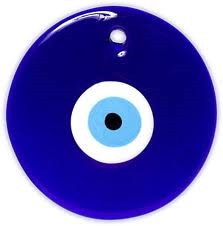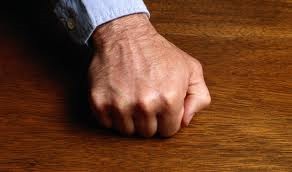by Nancy J. Cohen
In Jewish tradition, whenever you are thinking about how well things are going, you must give yourself a “Kinehora” (pronounced kin-ah-hoh-rah). If you don’t, you tempt fate to provide the opposite.
In my Yiddish dictionary, it’s spelled out as “Kain ein horeh” and means No Evil Eye, or may no evil befall you. In a recent example, I was thinking about how it had been years since I’ve had a cold. Then—boom, I catch my husband’s viral illness and get a terrible sore throat and sinus infection. I forgot to give myself a Kinehora.
My mother and aunt used to say it this way, which our kids think is hilarious: “Kinehora, kinehora, kinehora, poo poo poo.” Don’t ask me where this particular tradition originated or how much of it is valid. I just know, if you think things are going well and forget to say “Kinehora” or “knock wood” or whatever other phrase you choose, surely you’ll be hit with bad fortune.
Is this superstition? Of course it is. But it also respects the yin-yang of the universe. Keep in mind that you can say kinehora for another person. Let’s say your friend brags about his rise to bestsellerdom. You say “kinehora” in response so he isn’t cursed with evil.
Then I looked up the Evil Eye online. Belief in this phenomenon crosses many cultures. The evil eye is a malicious glance given to a person to whom one wishes harm. Often the person initiating the curse does so unintentionally and out of envy. Charms, amulets, and talismans can protect against this curse, like the blue glass decorated eye you see in gift shops. Supposedly this symbol reflect the evil back to the conjurer.
Giving yourself a kinehora is akin to knocking on wood. Whenever you boast about something or make a favorable observation, you can avoid tempting fate by performing this action or mentioning it. Or if you encounter something that might cause bad luck, like crossing paths with a black cat, you can counteract it by touching wood. Where did this practice originate? Early believers felt spirits dwelled in trees. By knocking on wood, you could alert them to help you. A Jewish version dates back to the Inquisition, when Jews gave a coded knock on wooden temple doors in order to enter safely. Again, this practice crosses many cultures just like the Evil Eye.
How does this apply to your writing career? You may think you’re on top of the world, doing great with your book sales, respected by your comrades, putting out multiple books to critical acclaim. And then boom—your editor leaves. Your line is cancelled. You’re asked to take a cut in your advance. Suddenly, you’re struggling to maintain momentum. The lesson here? Be kind to others, never think you’re above anyone, keep up with changes in the publishing world, and be open to new means of delivery for your work. And remember to say Kinehora or knock on wood whenever you think things are going well.
For more information, see these resources:
http://en.wikipedia.org/wiki/Evil_eye
http://en.wikipedia.org/wiki/Knocking_on_wood
http://ask.yahoo.com/20040504.html
http://wordsmith.org/board/ubbthreads.php?ubb=showflat&Number=123624
Now here’s another way for writers to apply this lesson to your characters. Are they superstitious? What phrase do they say under these circumstances? How about you?


